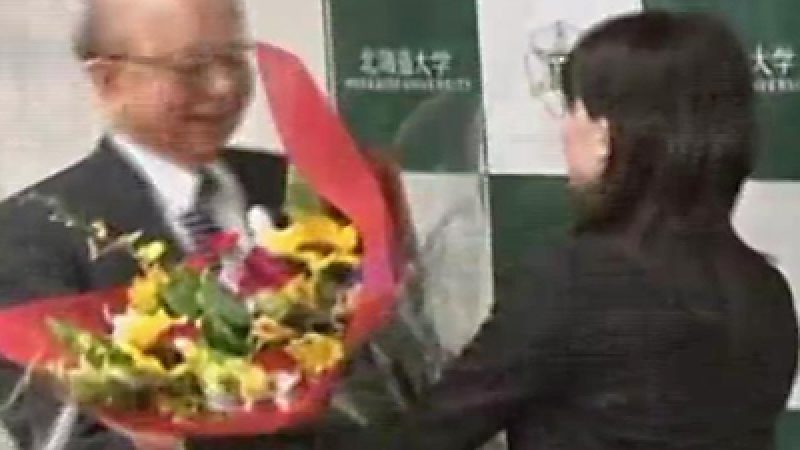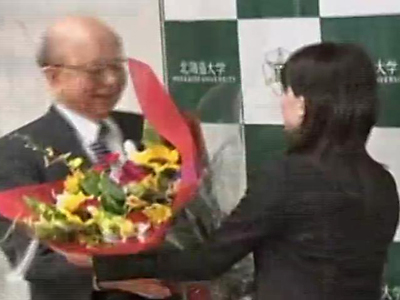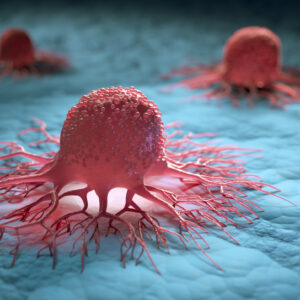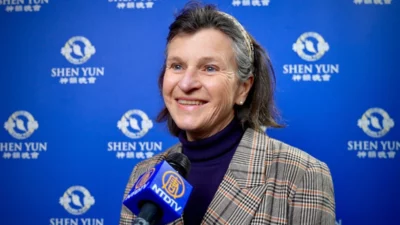
One American and Two Japanese Share 2010 Nobel Prize in Chemistry

The 2010 Nobel Prize in Chemistry was awarded jointly to three scientists, one American and two Japanese.
Richard Heck, Ei-ichi Negishi and Akira Suzuki were awarded for their individual development of paladium-catalized cross coupling in organic synthesis.
The three laureates have been independently devising a chemical tool which uses the metal palladium as a catalyst for linking carbon molecules into larger, more complex structures.
This new technique can be used for creating new medicine and agriculture products. It’s also useful in the plastic and electronics industry.
[Professor Per Ahlberg, Former Chemistry Nobel Committee Member]:
“The achievements of the three laureates make it possible to make complicated molecules, which are important medical components. You can make new materials, electronic materials which you couldn’t do before.”
The research was inspired by a Caribbean sea sponge that produces a chemical to fend off its predators. The chemical, called discodermolide, has potential as a cancer treatment. For decades scientists have tried to recreate the chemical in the lab.
The chemistry laureates have been complementing each other’s discoveries since the 70’s.
NTD News, Stockholm, Sweden
 Foto: NTDTV
Foto: NTDTV





























vielen Dank, dass Sie unseren Kommentar-Bereich nutzen.
Bitte verzichten Sie auf Unterstellungen, Schimpfworte, aggressive Formulierungen und Werbe-Links. Solche Kommentare werden wir nicht veröffentlichen. Dies umfasst ebenso abschweifende Kommentare, die keinen konkreten Bezug zum jeweiligen Artikel haben. Viele Kommentare waren bisher schon anregend und auf die Themen bezogen. Wir bitten Sie um eine Qualität, die den Artikeln entspricht, so haben wir alle etwas davon.
Da wir die Verantwortung für jeden veröffentlichten Kommentar tragen, geben wir Kommentare erst nach einer Prüfung frei. Je nach Aufkommen kann es deswegen zu zeitlichen Verzögerungen kommen.
Ihre Epoch Times - Redaktion